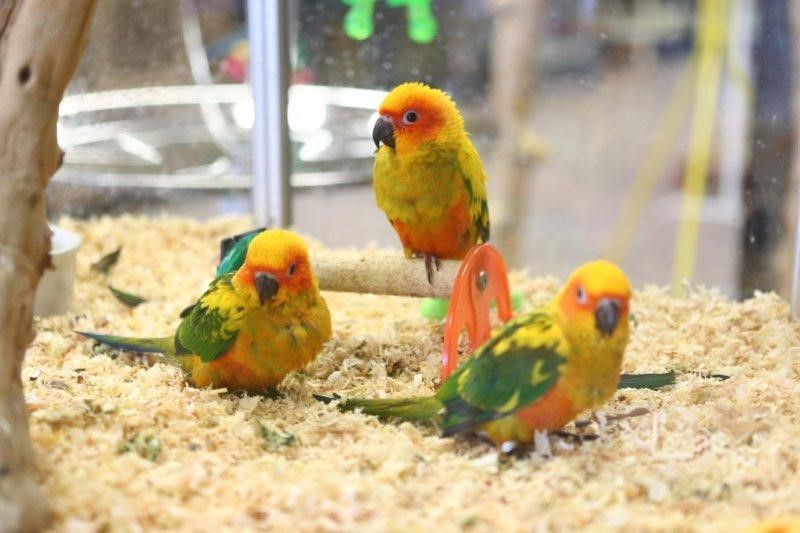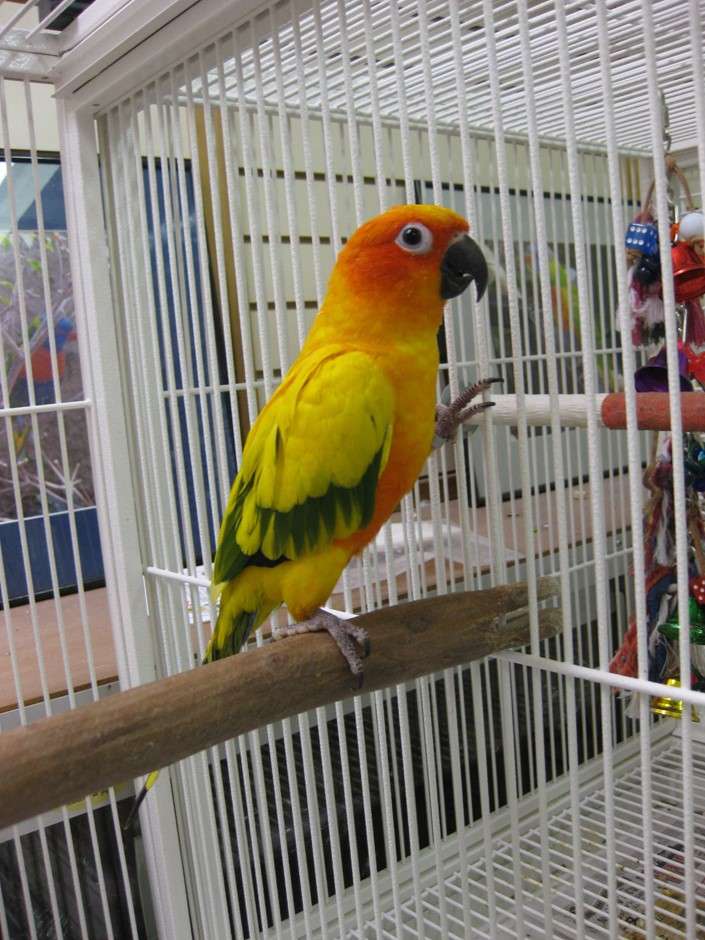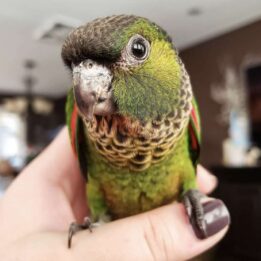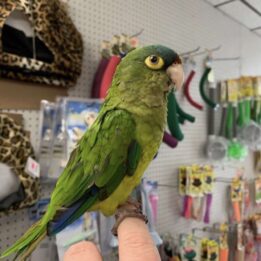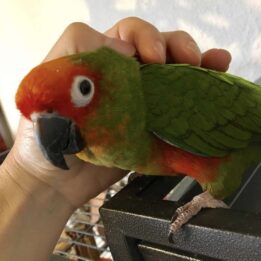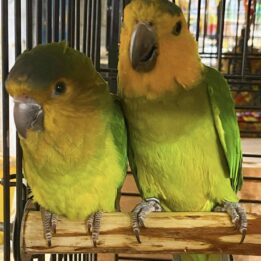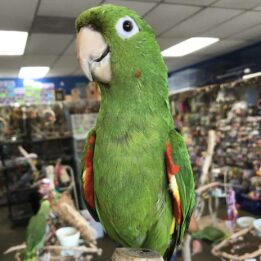The Sun Conure is one of the most popular birds due to their beautiful coloration and fantastic disposition. These vocal and inquisitive birds are content to be with their pet parents for hours.
Conures make great pets for apartment dwellers or families looking for a small bird with a big personality!
It requires daily interaction.
Brilliantly colorful, intelligent, friendly, and loaded with personality, the sun conure has long been popular among families fond of companion birds. But owners should be prepared for one of the loudest of all the medium-sized parrots.
Breed Overview
Common Names: Sun conure, sun parakeet
Adult Size: 12 inches
Life Expectancy: 25 to 30 years
Natural Habitat
The sun conure is native to South America, specifically Venezuela, Northern Brazil, and Guyana.
Normal Behavior
Sun Conures like to chew, so ensure they have lots of toys to chew on.
Intelligent and affection birds, they require daily interaction with their pet parents.
Can be loud and noisy.
Provide foraging toys, which provide essential mental stimulation.
Ensure toys are firmly attached as they can unscrew c-clamps, which can cause injury.
Appearance
The sun conure is one of the more popular conures of its size due to its stunning plumage, its extraordinary disposition, and its exceptional quality as a companion bird. Sun conures are lively, vocal, and expressive; this is a bird best known for its beauty and its big mouth. The sun conure is approximately 12 inches long and is most recognizable by its bright orange and yellow coloring, often mottled here and there with splotches of green.
The sun conure has a black beak, white rings around its eyes, and a long, tapering tail. The sunny’s striking coloration and sweet temperament make it a favorite among pet owners and a darling with experienced aviculturists because it is easily bred. Immature birds do not reach their full coloration for about two years. Though the coloration between the sexes is very similar, the males are said to be slightly brighter. Males are also said to have a squarer, flatter head and females a rounder, smaller head, though only experienced breeders are good at eyeing the birds and making an educated guess. Certainly, there is no difference in pet quality.
Temperament
The sun conure is a playful, funny bird that enjoys athletic tricks. In general, it is a very affectionate and even cuddly bird that is gentle to all members of the family provided they treat it well. It is easily trained. The bird is not without confident, though; it can turn aggressive suddenly if it is provoked.
The sun conure is extremely loud, capable of releasing ear-piercing screams. In the wild, this call is used to communicate to other birds miles away; in captivity, it may often return calls from angry neighbors. This is not a bird for apartment or condo dwellers. Conures are not shy birds and will let you know if their needs are not being met. The loud, sharp call is used to bring attention to important situations, and many birds have been known to become excellent “watchdogs.”
Caring for the Sun Conure
The sun conure is an active bird that will be happiest in a roomy enclosure; at a minimum, give it a cage 20 by 20 inches in footprint with a height of at least 36 inches. Make sure the cage has fairly narrow bar spacing (3/4 to one inch) to prevent the bird from getting its head stuck.
A play gym on top of the cage is perfect, as this is an athletic bird that loves to create its tricks. The sun conure is less concern about bathing than some parrots, but most will splash about and bathe daily if the cage has a bowl of clean water each day. Conures do not like spray showers as much as some other parrots do.
As is true of most other parrot species, the sun conure needs safe out-of-cage areas to explore and get to know more. Like all parrots, sun conures are social birds that require a considerable amount of interaction with their human owners to be happy. The sun conure is naturally playful and affectionate when it gets the attention it needs, making it especially suited for those who want a bird for steady companionship.
Like most pet birds, sun conures require training if you want to have a positive and fun relationship with them. Positive training techniques can be used to train this parrot to a number of athletic tricks; the bird will not respond to scolding or any negative build-up.
Feeding the Sun Conure
Feeding
Things to remember when feeding your sun conure:
Fresh food and water should always be available.
Vegetables and fruits not eaten within a few hours should be discarded.
Treats should not exceed 10% of total food.
Diet
A well-balanced sun conure diet consists of:
Specialized pellets should make up 60 to 70% of the diet, plus fresh vegetables, fruits and small amounts of fortified seeds.
Clean, fresh, filtered, chlorine-free water, changed daily.
Do not feed birds avocado, fruit seeds, chocolate, caffeine, or alcohol as these can cause serious medical conditions. Avoid sugar and high fat treats.

